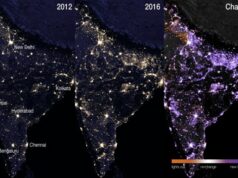Is Nepal a failed or failing state? It is now 16 years since the constituent assembly abolished the 240-year-old monarchy. Thirteen elected governments have followed in the course of these years, and political stability remains elusive.
Two days ago, Prime Minister Pushpa Kamal Dahal aka Prachanda saw a coalition ally walk out. Senior Madhesi leader Upendra Yadav of the Janta Samajwadi Party quit after his own party split. What happens now?
Yubaraj Ghimire, Editor of Deshsanchar.com, an online news portal in Kathmandu, speaking on The Gist, said the prime minister would have to seek a vote of confidence at some point. He is in no danger of falling because he has the support of the Communist Party of Nepal and its leader KP Sharma Oli.
But Ghimire believes it is Oli who engineered the current crisis because he wants to be prime minister. Of course he doesn’t want to give the impression that he wants the job, that would not look good politically, but about Oli’s ambitions there should be no doubt.
In this context, Ghimire makes another point: Nepali politicians are driven entirely by personal ambition. This applies even to the communists, so alliances are made and unmade with only personal convenience in mind.
On whether Nepal is a failed or failing state, Ghimire says either definition would not be to the liking of some of the principal actors who, through their policies, have contributed to the current situation. Some of the blame goes to India, he says, which brought the Maoists into the political system.
India also opened Nepal’s doors to the US and Europe, so secularism was injected into the political discourse and enshrined into the constitution with hardly any debate, argues Ghimire.
That is the demand now being made by a younger generation of Nepali politicians, that parliament should discuss the whole of issue of secularism. It has also triggered a larger debate about Nepal’s Hindu ethos and revived demands in some quarters to restore the monarchy.
Tune in for more in this conversation with Yubaraj Ghimire in Kathmandu.
Thirty eight years in journalism, widely travelled, history buff with a preference for Old Monk Rum. Current interest/focus spans China, Technology and Trade. Recent reads: Steven Colls Directorate S and Alexander Frater's Chasing the Monsoon. Netflix/Prime video junkie. Loves animal videos on Facebook. Reluctant tweeter.




